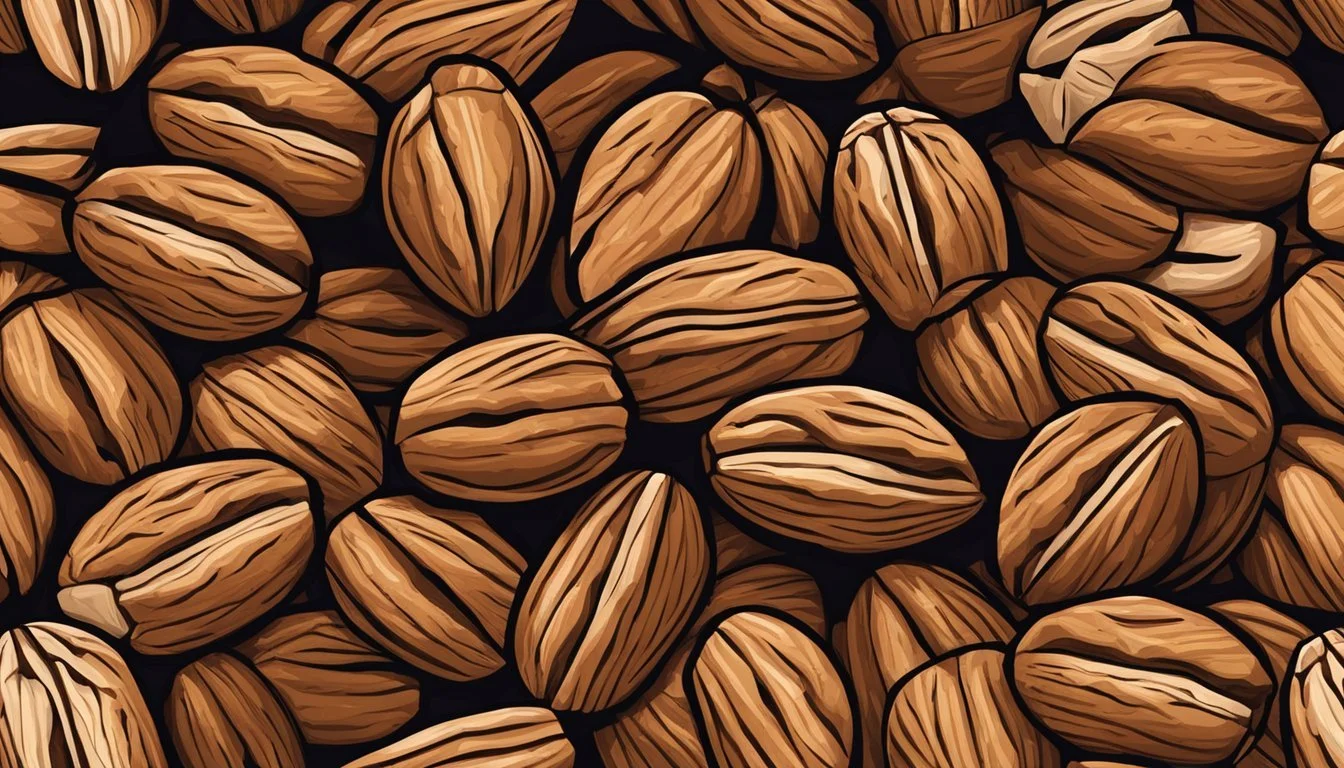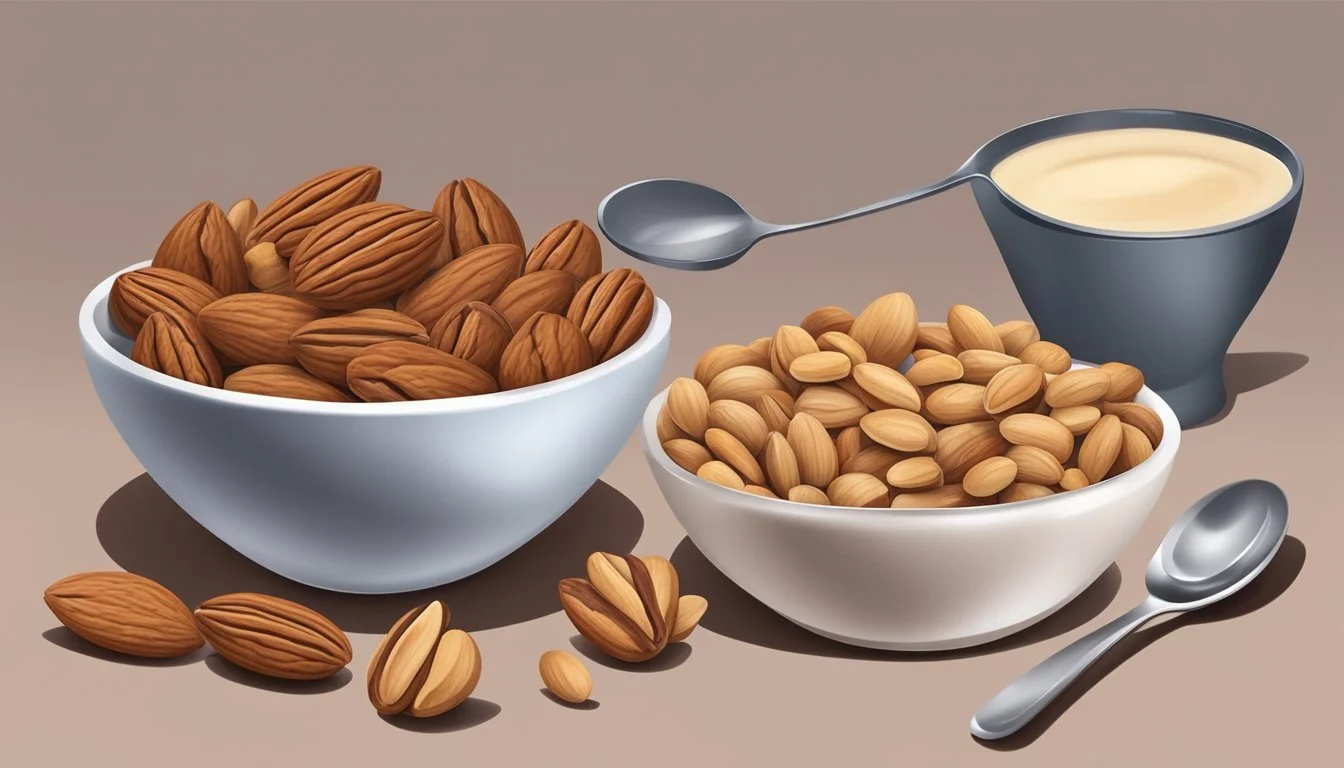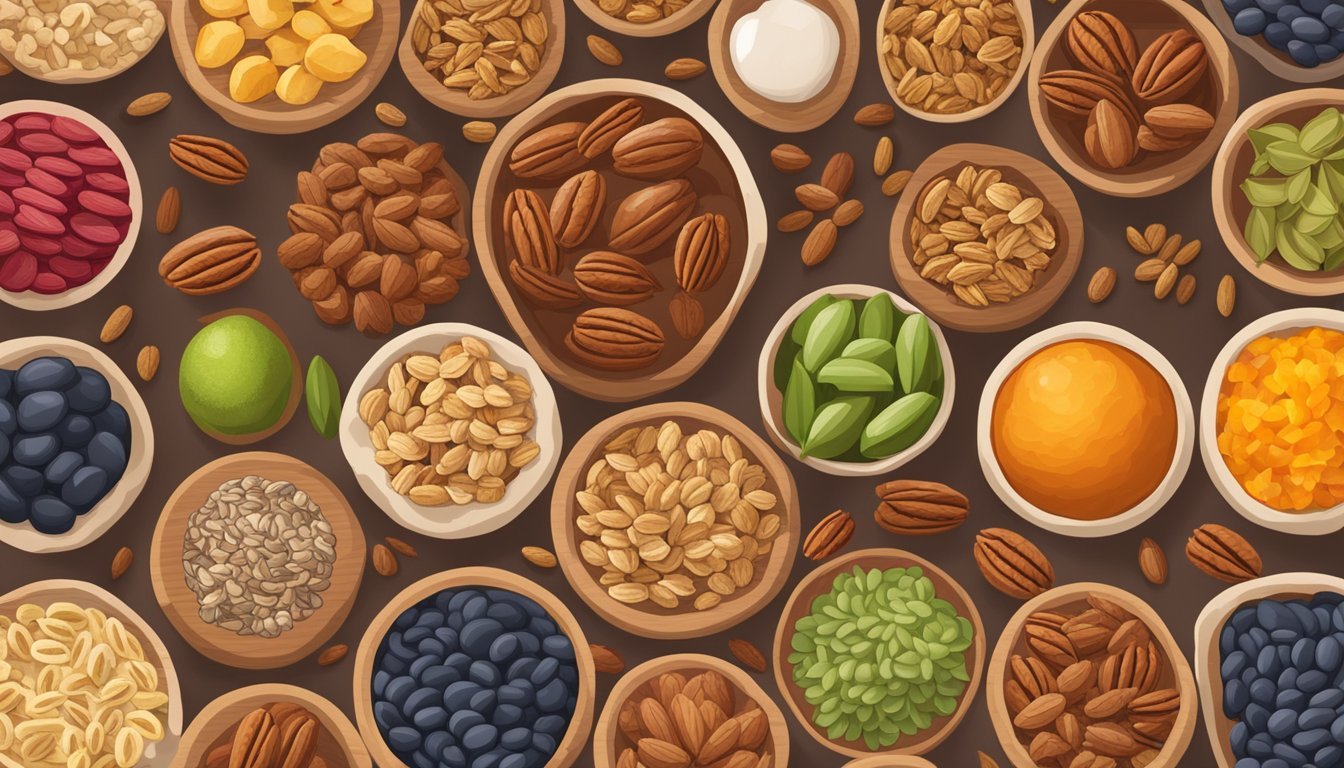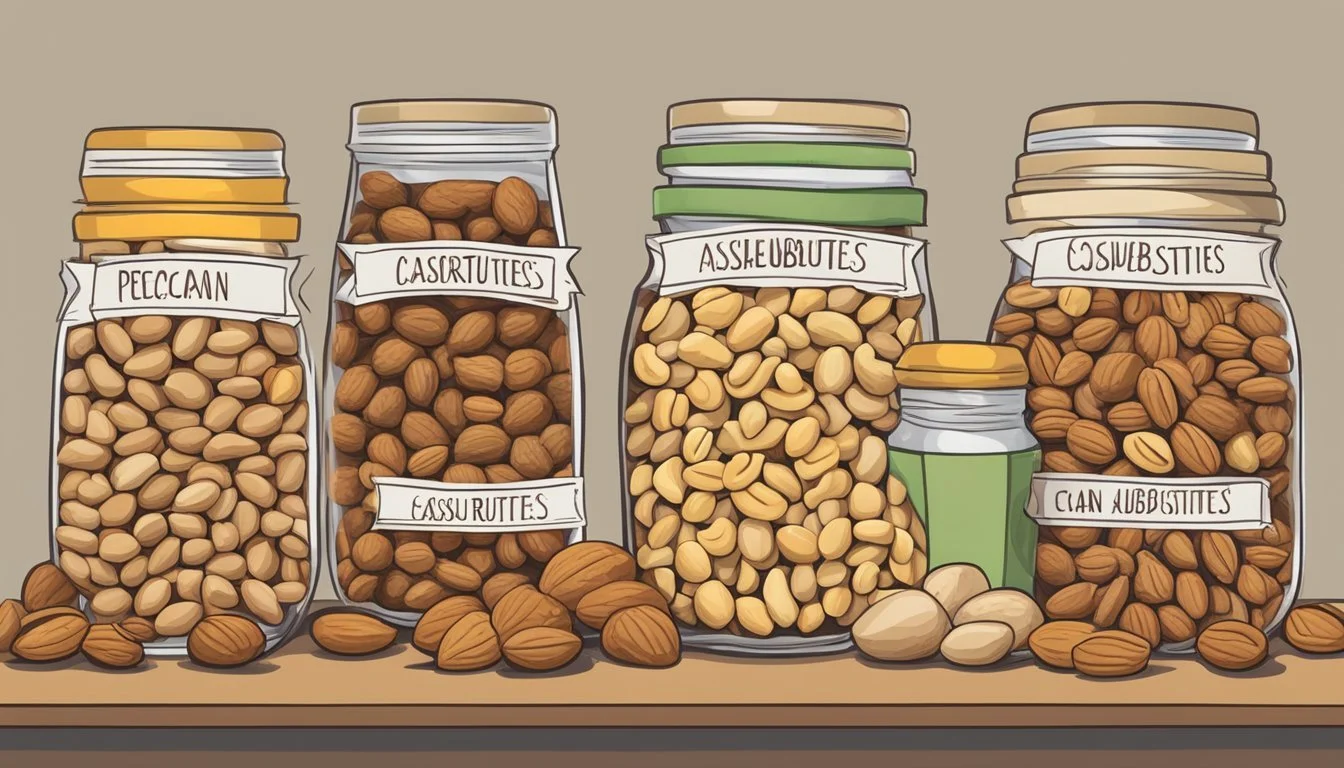Pecans Substitutes
Best Alternatives for Cooking and Baking
Finding the perfect substitute for pecans can be essential for many reasons, whether it’s due to allergies, availability issues, or personal preference. There are several alternatives that can seamlessly replace pecans in a variety of dishes without compromising flavor or texture. One of the best substitutes for pecans is walnuts, which share a similar taste and crunch, making them an ideal replacement in both sweet and savory recipes.
For those who need a nut-free option, sunflower seeds are a fantastic alternative. They provide a comparable crunch and a mild flavor, suitable for baking and cooking alike. Additionally, those looking for a rich, buttery texture similar to pecans may opt for macadamia nuts, which bring a creamy and distinct nutty flavor to your culinary creations.
By exploring these substitutes, you can effortlessly tailor your recipes to fit various dietary needs and preferences. Whether you're in the kitchen preparing a holiday pecan pie or a weekday salad, these alternatives ensure you won't miss out on the deliciousness that pecans bring to the table.
Understanding Pecans and Their Unique Characteristics
Pecans are known for their distinctive buttery flavor and rich nutrient profile. These characteristics make them a favorite in both culinary and nutritional contexts.
Nutritional Profile of Pecans
Pecans are packed with a range of essential nutrients. They are a good source of monounsaturated fats, which are beneficial for heart health. Each serving provides about 2.7 grams of fiber, aiding in digestion and weight management.
In terms of vitamins and minerals, pecans are especially rich in magnesium, potassium, and calcium. They contain essential antioxidants, such as vitamin A and vitamin C, which help protect cells from damage. Trace minerals like zinc, copper, and iron are also present, contributing to overall bodily functions.
A typical nutritional breakdown per ounce of pecans includes:
Fiber: 2.7g
Protein: 2.6g
Magnesium: 34mg
Potassium: 116mg
Iron: 0.7mg
Calcium: 20mg
Copper: 0.3mg
Thiamin: 0.18mg
Culinary Uses of Pecans
Pecans' buttery flavor and versatile texture make them suitable for a variety of dishes. They are commonly used in desserts like pecan pie, pralines, and cookies, where their crunch adds a delightful contrast.
In savory dishes, pecans can be found in salads, roasted vegetable mixes, and as a crust for fish or poultry. They can also be candied or used as a topping for oatmeal and yogurt, providing both flavor and nutritional benefits.
For those looking to incorporate more pecans into their diet, they can be enjoyed raw, roasted, or as part of nut mixes. Their versatility and rich flavor make them a popular choice in both traditional and innovative recipes.
Criteria for Choosing Pecan Substitutes
When selecting substitutes for pecans, it is important to consider flavor compatibility, texture, and nutritional similarity. Each of these factors ensures that the chosen substitute will perform well in the specific dish.
Flavor Compatibility
The flavor profile of the substitute should closely match that of pecans. Pecans have a buttery, slightly sweet, and nutty taste. Walnuts, for instance, share similar earthy and mild flavors, making them an excellent alternative in both sweet and savory dishes.
On the other hand, macadamia nuts offer a buttery texture and sweet flavor, ideal for desserts. Hazelnuts can also be used due to their rich, nutty taste that mimics pecans in various recipes. It's crucial to match the flavor so it complements the other ingredients in the dish.
Texture Considerations
Texture plays a significant role in determining the best pecan substitute. Pecans are known for their crunchy yet slightly soft texture. Walnuts provide a similar crunch, making them suitable for baked goods and salads.
Macadamia nuts have a smooth, buttery texture which works well in creamy desserts but may not be ideal for dishes requiring significant crunch. Hazelnuts, with their firm and crisp bite, work well in both baked goods and coatings for proteins. Matching the texture helps maintain the intended mouthfeel of the recipe.
Nutritional Similarity
Nutritional content is another vital criterion when choosing a pecan substitute. Pecans are rich in healthy fats, fiber, and protein. For example, walnuts offer similar nutritional benefits, with a comparable fiber and protein content.
Here's a comparison:
Nut Fiber (g) Protein (g) Pecans 2.7 2.6 Walnuts 2.4 4.3 Macadamias 2.4 2.2
Choosing a substitute with similar nutritional value ensures the dish provides the same health benefits. Additionally, consider any dietary restrictions; for example, pecan oil can serve as a nut-free alternative in certain recipes, offering a mild flavor without altering the nutritional profile dramatically.
Selecting the right pecan substitute involves careful consideration of these three factors, ensuring both the taste and health benefits of your recipes are preserved.
Best Pecan Substitutes for Baked Goods
Pecans are loved for their sweet and nutty flavor, making them a popular ingredient in various baked goods. When substituting pecans in recipes, it's essential to choose alternatives that mimic their taste and texture. Here are the best substitutes for different types of baked goods.
Substitutes in Cakes and Cookies
For cakes and cookies, walnuts and hazelnuts are excellent choices. Walnuts have a similar crunch and slightly bitter-sweet flavor, making them a suitable replacement. They also provide a good amount of fiber and protein.
Hazelnuts bring a rich, buttery taste, perfect for chocolate chip cookies or coffee cakes. They also blend well with other flavors, enhancing the overall taste without overpowering it.
Another good option is almonds, especially if you prefer a milder flavor. Chopped or slivered almonds can replace pecans in recipes, providing a delightful crunch and a subtle nutty taste. For a sweeter touch, consider using pistachios. Their vibrant green color adds visual appeal to cookies and other baked treats.
Substitutes for Pies and Pastries
When it comes to pies and pastries, finding a nut that complements the rich fillings and flaky crusts is crucial. Walnuts are again a strong contender, particularly in nut-based pies, like pecan pie. Their similar texture and flavor profile make them a seamless substitution.
Macadamia nuts offer a creamy texture and buttery flavor, making them ideal for pastries that require a decadently smooth bite. They pair well with sweet fillings, adding a luxurious touch.
For those seeking a nut-free alternative, granola can work well in some recipes, especially sweet pies and pastries. It provides a crunchy texture and blends in beautifully with syrups and spices. Finally, dried fruit, such as raisins or cranberries, can be used to add sweetness and chewiness without any nuts at all, making it perfect for those with nut allergies.
By choosing the right substitute, you can maintain the delicious taste and texture that pecans bring to your favorite baked goods.
Nut Alternatives for Pecans in Cooking
When looking for substitutes for pecans, there are numerous alternatives that cater to both nut enthusiasts and those seeking nut-free options. Various tree nuts and seeds offer comparable flavors and textures, while legume-based choices provide unique characteristics for various dishes.
Tree Nuts and Seeds
Walnuts are a popular substitute for pecans. They have a rich, slightly bitter flavor and add a nice crunch to baked goods and savory dishes. Walnuts can be used in a 1:1 ratio when replacing pecans in pies, cookies, and salads.
Pine Nuts have a softer, more delicate flavor compared to pecans but work well in dressings and pestos. Their smaller size and buttery texture make them a unique addition to dishes like pasta and grain bowls.
Almonds are versatile nuts that can be used whole, sliced, or slivered. They have a mild, sweet flavor and a crunchy texture, making them suitable for both savory and sweet recipes. Almonds are particularly good in salads and as toppings for desserts.
Pistachios offer a distinctive flavor and vibrant color. With their slightly sweet and earthy taste, they are excellent in both savory dishes and baked goods. Pistachios can replace pecans in cookies, cakes, and granola bars.
Sunflower Seeds and Pumpkin Seeds provide nut-free options with a crunchy texture and mild flavor. These seeds can be used in baking, salads, and as a topping for various dishes. They are especially useful for those with nut allergies.
Legume-Based Alternatives
Peanuts, technically legumes, are a common substitute for pecans in many recipes. Their rich, nutty flavor and crunchy texture make them ideal for use in baked goods, salads, and savory dishes. Peanuts can be used as a 1:1 replacement in most cases.
Chickpeas, another legume, can be ground into flour or roasted and used in recipes calling for pecans. Chickpea flour adds a nutty undertone to baked goods, while roasted chickpeas offer a crunchy element for salads and grain bowls.
Using legume-based alternatives can provide additional nutritional benefits, such as increased protein and fiber content, making them a healthy choice for various dishes.
Non-Nut Substitutes for Pecans
For those with nut allergies or preferences against nuts, several non-nut substitutes for pecans can be both flavorful and nutritious. These alternatives can offer similar textures and tastes, making them suitable replacements in various recipes.
Healthy Seed Options
Chia Seeds are a viable option with their small size and significant nutritional value. They provide a crunchy texture when added to baked goods or salads. Chia seeds are rich in omega-3 fatty acids, fiber, and protein, making them a healthy choice.
Sunflower Seeds offer a mild nutty flavor and a crunchy texture. They are easy to find and can be used in both sweet and savory dishes. High in vitamin E, magnesium, and selenium, sunflower seeds are not only nutritious but also beneficial for heart health and reducing inflammation.
Fruit and Grain Alternatives
Granola is a versatile option that combines oats, seeds, and dried fruits. It offers a crunchy texture similar to pecans and can be customized to fit different flavor profiles. Granola is high in fiber and various vitamins, depending on the ingredients used, making it a nutritious substitute.
Dried fruits like cranberries, raisins, or apricots can add a chewy texture and natural sweetness to your recipes. These fruits are rich in antioxidants, vitamins, and minerals, which can boost the nutritional value of your dishes. Use them in moderation to balance sweetness and texture effectively.
By exploring these alternatives, one can easily find suitable and healthy replacements for pecans in many recipes. Whether using seeds for their crunch or dried fruits for their sweetness, these options cater to different dietary needs and preferences.
Special Considerations for Pecan Substitutes
When choosing substitutes for pecans, it's important to take into account factors such as allergies and budget constraints. Both considerations can greatly influence the selection of an appropriate alternative.
Allergy-Friendly Options
For individuals with nut allergies, finding safe alternatives to pecans is critical. Pumpkin seeds and sunflower seeds are excellent nut-free options that provide a similar crunch and nutty flavor. Pecan oil, while made from pecans, may still be safe for some with nut allergies if it's refined and the proteins are removed; however, caution is always advised.
Chia seeds and flaxseeds are other alternatives that offer additional health benefits, such as being rich in omega-3 fatty acids. These seeds can be ground and used in baking or sprinkled over dishes for added texture and nutrition. Nut oils like walnut or almond oil should be avoided if nut allergies are a concern.
Budget-Friendly and Accessible Choices
Nuts can be expensive, and pecans are often at the higher end of the price spectrum. Walnuts and hazelnuts are more affordable and offer a similar texture and taste. Walnuts are especially noteworthy as they are rich in omega-3 fatty acids, which are beneficial for heart health.
Another cost-effective option is macadamia nuts, although they can sometimes be more expensive, they are noted for their creamy and buttery flavor, making them ideal for desserts. Seeds like sunflower and pumpkin seeds are not only budget-friendly but also readily available in most grocery stores, adding both versatility and nutrition to recipes.
Considering these options can provide both nutritional benefits and cost savings without sacrificing flavor and texture.
Delicious Add-Ins and Flavor Enhancers
Adding specific ingredients can enhance your recipes, whether you're looking to create a sweet, savory, or buttery flavor akin to that of pecans. These additions can elevate both baking and cooking by introducing nuanced tastes and textures.
Sweet and Savory Enhancers
Chocolate chips are a fantastic choice for a sweet addition, balancing the flavors in desserts. For a rich and smooth touch, consider honey, which adds not only sweetness but also depth to both sweet and savory recipes. Vanilla extract is another essential, offering a subtle sweetness and enhancing the primary ingredients’ flavors.
In savory dishes, opting for ingredients like smoked paprika or sea salt can replace the unique taste of pecans. Seeds such as sunflower or pumpkin can be used for a crunchy texture, while maintaining a savory profile. To achieve a buttery taste, try incorporating butter or ghee; these provide a smooth and luxurious mouthfeel.
Oils and Extracts for Additional Flavor
Using flavored oils like walnut oil or macadamia nut oil can closely mimic the pecan taste and add a unique twist to various recipes. Avocado oil also brings a rich, buttery flavor, making it ideal for both baking and cooking applications.
Extracts such as almond or hazelnut extract can contribute to a nutty depth, essential in many dessert and bread recipes. These extracts can be used sparingly to amplify the existing flavors or to introduce new ones. Maple extract can also infuse a sweet complexity, reminiscent of pecans, into your culinary creations.
Health Considerations When Selecting Pecan Substitutes
When selecting a substitute for pecans, it is crucial to consider both nutritional content and impact on health, especially concerning key nutrients and heart health benefits. Various alternatives such as walnuts, macadamias, and cashews offer unique health advantages.
Nutrient-Dense Alternatives
Nutrient-dense substitutes for pecans are rich in essential nutrients like fiber, protein, vitamins, and minerals. Walnuts provide a comparable fiber content of 2.4g per serving, similar to pecans. They also offer 4.3g of protein, which can be beneficial for muscle maintenance. Macadamia nuts are another great option with 2.4g of fiber and a notable amount of healthy fats.
Cashews carry significant protein and healthy fats, making them excellent for energy. These nuts are also loaded with nutrients such as magnesium, which supports bone health. Including these substitutes can ensure a well-rounded nutrient profile in your diet.
Impact on Cholesterol and Heart Health
Certain pecan substitutes can positively influence cholesterol levels and heart health. Walnuts, rich in omega-3 fatty acids, are known to help reduce LDL cholesterol, which can lower the risk of heart disease. They are also packed with antioxidants, specifically ellagic acid, which helps protect the heart.
Macadamias contain monounsaturated fats that are beneficial for heart health and reducing inflammation. These fats can also aid in the management of cholesterol levels. Cashews, while lower in omega-3s, still provide a heart-healthy profile due to their unsaturated fats and essential nutrients that support overall cardiovascular health. Integrating these nuts into your diet can contribute to improved heart function and reduced risk of chronic conditions.








